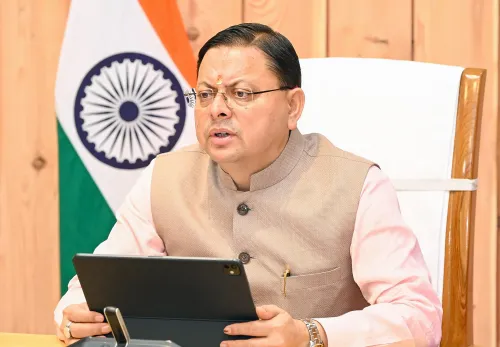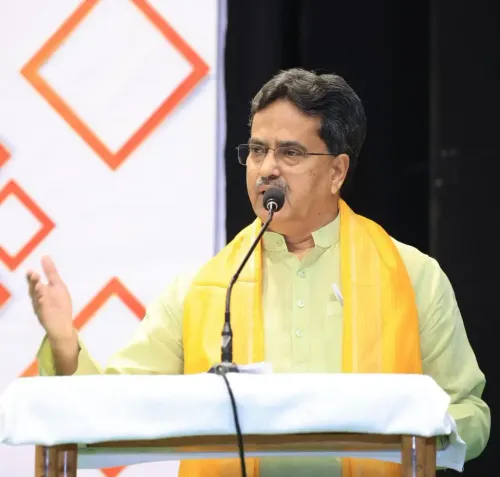What is the Maharashtra Agriculture-Artificial Intelligence MahaAgri-AI Policy?

Synopsis
Key Takeaways
- Maharashtra's Cabinet has approved a pioneering Agriculture-AI Policy.
- Focus on integrating AI and emerging technologies into agriculture.
- Funding of Rs 500 crore for the initial three years.
- Establishment of an Artificial Intelligence and Agritech Innovation Centre.
- Creation of a cloud-based Agriculture Data Exchange.
Mumbai, June 17 (NationPress) The state Cabinet, led by Chief Minister Devendra Fadnavis, has officially approved the Maharashtra Agriculture-Artificial Intelligence MahaAgri-AI Policy 2025-2029, designed to place the state's agricultural sector at the cutting edge of the digital revolution.
“The policy will implement sustainable and scalable solutions leveraging emerging technologies such as Artificial Intelligence (AI), Generative AI, Internet of Things (IoTs), Drones, Computer Vision, Robotics, and Predictive Analytics. This initiative will support projects like Agristack, Maha-Agristack, Mahavedh, CropSap, Agmarknet, Digital Farming School, and Maha-DBT in the state. A three-tier administrative structure will be established for the policy's execution, with a fund of Rs 500 crore allocated for the first three years,” stated the government announcement.
The Cabinet also resolved to revise this policy over the next five years to keep pace with the rapidly evolving Artificial Intelligence (AI) sector. The State Level Steering Committee, State Level Technical Committee, Artificial Intelligence and Agritech Innovation Centre, and Agricultural Artificial Intelligence Research and Innovation Centre under the Agricultural University will oversee this process.
“This policy will cultivate a premier hub for AI and innovation in the agricultural sector of the state, enhancing farmer-centric applications of AI technology, promoting research, facilitating data sharing, supporting start-ups, and positioning Maharashtra as a leader in digital agricultural innovation,” the government announcement emphasized.
The state agriculture department noted that the policy aims to incentivize startups, technology firms, agricultural universities, research institutes, agricultural science centers, private entities, and farmers/Farmer Producer Organizations (FPOs) to embrace a farmer-centric approach to Artificial Intelligence and emerging technologies.
This initiative will also formalize the establishment of an Artificial Intelligence and Agritech Innovation Centre, serving as an independent and dedicated mechanism for the effective execution of this policy. This center will address various aspects of the policy, including partnerships with national and international institutions, innovation promotion, project selection, financing, coordination, and capacity building.
Agri-Artificial Intelligence Innovation and Incubation Centres will be launched in four agricultural universities across the state, guided by institutions such as IITs and IISc. The policy outlines plans for a digital public infrastructure to back data-driven agriculture and AI applications, ensuring secure, consistent, and consent-based data sharing statewide.
A cloud-based Agriculture Data Exchange (A-DeX) and sandboxing facility will be established, connecting all agriculture-related databases of the Central and State Governments (including Agristack, Mahavedh, Maha-Agritech, CropSap, Agmarknet, Digital Shetishala, and Maha-DBT) to this digital platform. This exchange will provide access to data on farmers, their land, crop details, local weather, and soil health for AI initiatives.
“An integrated engine equipped with AI-enabled Remote Sensing and Geo-spatial Intelligence will be developed. This system will aid decision-making by analyzing spatial data collected through satellite imagery, drone surveys, UAVs, and IoT devices. It will connect to national and state platforms like MahaVedh, FASAL, and Bhuvan via API, making it useful for departments like Agriculture, Water Resources, and Revenue and Disaster Management for various functions,” the government release concluded.









